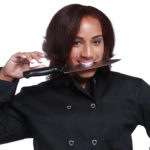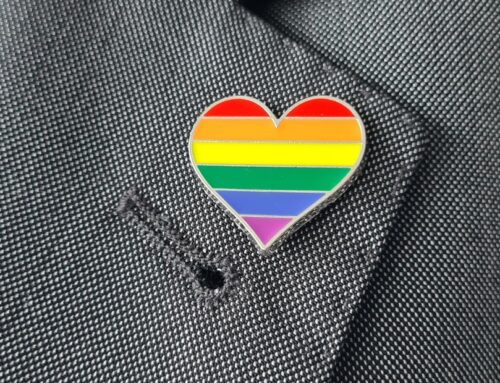COVID-19 has brought immense devastation to people around the world with business owners being one of the hardest-hit groups. Especially female-owned businesses.
Active US business ownership between February and April saw a 22% drop, according to a June piece from the National Bureau of Economic Research (NBER). The largest on record, the 3.3 million decrease affected businesses across the majority of industries. The decrease was even greater among minority- and female-owned businesses. The NBER piece shows an additional 25% decrease in female business ownership.
Promised relief fell short for female and minority-owned businesses. 90% of minority and female-owned small businesses were expected to not to be approved for a PPP loan because they lacked pre-existing loans or relationships with lenders. Amid a crush of applications, financial institutions showed PPP loan favor to existing lendees, disproportionally disadvantaging female- and minority-owned businesses. And women- and minority-owned businesses who did gain access were awarded significantly less than their majority male counterparts.
Months after lockdown and PPP funds distribution, female-owned businesses in Texas are still dealing with the changes COVID-19 forced on them. We recently spoke with two members of EWF International’s Dallas Business Owner Peer Advisory Forum, Jolene Risch and Amber Williams, about their experience and how they are working around the challenges coronavirus created for their businesses.
Unpredictable Devastation Hits Female-Owned Businesses
No business owner could have predicted such amount of change, in so little time. Women-owned businesses were no exception. “It was when Total Wine canceled a store opening I was scheduled to cater that I realized that COVID was going to make a major impact on my business. In March, I saw a 91% revenue decrease. Corporate catering was no longer a viable business trajectory and that’s when I knew this was going to get worse before it got better,” said Amber Williams, owner of LeRouge Cuisine.
For Jolene Risch, owner of Risch Results, a prominent staffing company in Dallas, TX, the difference was very industry-specific and it happened fast, faster than what anyone could have prepared. “I first noticed stalled candidate responses from employers. We were presenting candidates to employers and not hearing anything back. When the Dallas shutdown happened, it really set in. We saw many hiring positions go on hold or get cancelled outright.“
Pivot or Die: Facing a New World Requires Fast Adaptation
For many businesses, survival required more than reducing expenses or relying on stimulus that might not come. The only solution has been pivot or die.
“I asked myself, what do people need right now? People are busier than expected. Some are working from home, taking care of kids, trying to teach school, and running out of time to shop for groceries or cook,” Amber Williams said. “That’s how my drop-off business started. We worked to make it really simple for people. There’s an online menu for ordering. We bring it to your door, text you, and that’s it. Then, I started doing more personal chef engagements. Despite restaurants being closed people still want the dining out experience. So, I come to your home and make a personalized, custom meal.”
For Jolene Risch, it required focusing on different offerings of the business. “At first, we developed an outplacement service. It was a way for companies laying off workers to help them find new employment. We would help them develop the skills needed to find a job in the new, remote employment environment. Skills like using LinkedIn for enhanced networking, how to interview on Zoom, things like that. But, it did not take off.”
For Jolene, the method required further experimentation and testing. “Traditionally, we offer end-to-end recruitment services. But, we realized many companies didn’t need or couldn’t afford it right now. So we were able to create small offerings. Since we knew how to do the whole process it was very easy to find niches with companies where our expertise would fit as smaller services.”
Responding Under Pressure: The Power of a Network and Community
Acknowledging needed change while under an enormous amount of pressure is no easy thing for a business owner. Especially not when you have a team to lead. “I made a promise early on, no layoffs. But, March and April were tough before we received the PPP stimulus,” Jolene Risch said.
So how did these two women business owners managed to build the resilience they needed to make the needed shift? It was community and their network.
“I was able to get great feedback through the EWF business owners forum. They asked me things I hadn’t considered before. With that help I was able to realize there were opportunities other than outplacement services where I could pivot”, said Jolene Risch. “I had the support of EWF members helping me.“
For Amber Williams, EWF really encouraged her to keep going, especially when things were not looking great. “They also helped me develop non-profit drop-off food donations for those in need. And they made sure I paid myself for my time, which is needed sometimes. With their help I was able to deliver over $2,000 in food to those in need.”
In addition to EWF, the Dallas collective of professional chefs showed up like family to Amber. “They were able to give me a lot of advice, referrals, and insights. I was able to see what my friends were doing, how they were pivoting. I could see who was being successful and learn from that success and apply it to my business.”
Reinventing Includes Marketing a New Set of Services – How Did They Do It?
Many businesses gain a reputation for doing one thing really well. That’s what made them successful in the first place. But, how do they change their service/product offerings overnight and get traction without the ability to meet with people one-on-one?
They relied on their network of friends, colleagues, families and fellow business owners. “I’m a big networking person. I know some people don’t like it, but I love it. But, that went away when we couldn’t meet in person. With that and the hiring freezes, our referral stream dried up. We thought about webinars, but I think people have Zoom fatigue. So much of daily business is on Zoom we’re tired of using it,” said Jolene Risch. “Instead, I turned to an appointment-setting service. I tried it once before and wasn’t happy with the results. But, I met a new person. I liked him and the process he and his people use so we tried it out and it’s been going well.”
For Amber, social media was the solution. “I’m a bad millennial! I hardly use it so I had to learn a lot about it. Luckily, I have a lot of great friends who are online influencers and were willing to help me. I was able to show the prep I do at home, cooking as a personal chef, and the plated dishes before service. It made my business very easy to reach people and for people to share with their friends. Also, personal referrals. My personal chef clientele do a great job of introducing their friends to my service.”
In the End, Nimbleness Was What Saved These Female-Owned Businesses
COVID-19 continues to affect both female-owned businesses, and the economy as a whole. While the interviewees found some relief through PPP loans, their willingness to pivot and be nimble has been crucial to their success. “I think what saved me was size and avoiding specialization. The large recruiting firms showed a real difficulty in adapting to the changing environment. As a small business it’s so much easier to make decisions and take action. And, against industry advice, we never specialized in a specific industry. So when specific industries were crippled by coronavirus we had other industries stay steady, even grow in recent months.”
“Just don’t give up, keep going. There are tons of resources out there to help you. If you’re not sure what your clients want, ask them. Small businesses have the most adaptability and capability for change and the best ability to survive” said Jolene.
Coronavirus has made a huge impact on America, especially on American business owners. As we all continue to figure out the new normal it’s important to use the available resources and gain outside perspective to succeed in the COVID-19 present and future. A peer advisory group like those facilitated by EWF International is a great way to engage with successful, non-competing peers to give you the guidance you need.
Thank you, Jolene and Amber, for taking the time to answer these questions and sharing your experience over the past few months. To learn more about EWF International’s Business Owner Peer Advisory Forum visit this page. In addition to resources for business owners, EWF also offers peer advisory forums for female executives and managers/directors.
About the Interviewees – Dallas Female Business Owners
 Jolene Risch – Risch Results
Jolene Risch – Risch Results
Jolene holds a Masters in Psychology from Columbia University and is an alumni of Goldman Sachs 10,000 Small Businesses Intensive Program. In 2007, after seeing local businesses struggle recruiting and business growth, Jolene founded Risch Results. Risch Results is a recruiting firm with an emphasis on culture fit, servicing varied industries across the nation.
 Amber Williams – Le Rouge Cuisine
Amber Williams – Le Rouge Cuisine
Amber knew she wanted to be a chef at age eight. After growing up, graduating college, and working in Corporate America, she had the opportunity to do just that. By 2015, Amber left Corporate America behind to pursue Le Rouge Cuisine full time. Le Rouge Cuisine is a special event and corporate catering service focused on Creole-fusion cuisine.
About EWF International’s Peer Advisory Forum
EWF International peer advisory forums equip and empower female entrepreneurs to achieve greater success. EWF concentrates on helping business owners focus on what will drive their companies forward while providing access to real-world problem solving, expert resources, and insightful perspectives.

 Jolene Risch – Risch Results
Jolene Risch – Risch Results Amber Williams – Le Rouge Cuisine
Amber Williams – Le Rouge Cuisine


